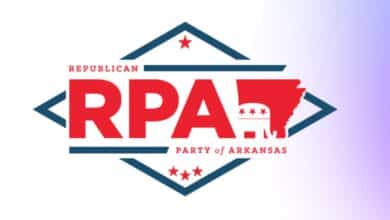To: Conduit for Commerce
From: David Ferguson
Date: October 12, 2023
RE: Review of the initial draft of the FOIA group.
This is a review of the initial draft of a constitutional amendment on the FOIA as published by the FOIA group. Here is the link to the draft. https://bit.ly/3QbrEdD
The review does not address the merits of any of the provisions of the proposal. The review is limited to technical issues. The comments include only one correction. All other comments concern technical issues the drafters may or may not want to consider.
- Correction of conjunction. Section 4 (b) addresses whether a law passed between September 1, 2023 and the adoption of the constitutional amendment is considered repealed. Subsection (b)(2) declares a law repealed if it “Creates an exemption or exception to the disclosure of public records and public meetings requirements under the Freedom of Information Act of 1967.” The word “and” should be replaced with the word “or.” As the phrase now reads a law is repealed only if the law amended both the provisions on public records AND the provisions on public meetings. A law amending only one or the other would not be repealed. The Supreme Court has on occasion corrected a conjunction where it is clear a different conjunction was intended. Instead of relying on the court, the conjunction should be corrected in the draft.
- Enough time for a campaign to oppose a change? Section 5 (c)(4) requires a bill to be published for six months in a newspaper. There is no limitation on when the legislature may pass such a bill. This means a special session could be called and a bill passed just before the six-month requirement. Is six months long enough time for an effective campaign to be mounted against the bill? If not, the drafters may want to consider a deadline for passage of such a bill.
- How often published? Publication of the notice in a newspaper is to be “for six months.” Does that mean every day, every week, a few times, once? The drafters should consider how often publication is to be made.
- Newspaper? Section 5 (c)(4) requires newspaper notice. Over the past several years some bills have been filed to replace publication in a newspaper with publication through the internet. The intent of their proposed changes was first to save money by publishing some notices on the internet instead of paying for a newspaper ad, and second because the reach of newspapers is dwindling, and they are mostly online anyway. Do the drafters want to always keep paying for newspaper ads even if the state changes the method of other notices? If not, then perhaps they would want to include some language for a change of method in the future.
- Exemption can’t be changed. Please note there is only one exemption that cannot be changed. It is the exemption concerning security found in Section 6 (a). There is nothing wrong with that. I just thought it should be mentioned to make sure it was intentional.
- Revision to shorten draft? Section 5 (c) concerns how the General Assembly can amend the FOIA when the goal is to make FOIA less transparent. Subdivision (c)(3) is a long list of instructions concerning the Governor’s approval of a bill passed by the General Assembly. The instructions in the draft are modeled on bills having an emergency clause. The language is in bills with an emergency clause because the exact date is critical. The date is not critical in this instance.
There is no problem with including the long instructions in the draft, but if the drafters want to shorten the draft it could be left out by using “by law” instead of saying approval of a bill. When “by law” is used it refers to a bill that has navigated the options used in the instruction of subdivision (c)(3).
If the drafters intentionally avoided “by law” because they thought it might cause confusion on whether the law was in effect before the election, that should not be a concern. There are other laws (Acts) that never become effective. For example, taxes can be referred to the people by the General Assembly (Arkansas Constitution Article 5, Section 38). Another example is a referendum petition filed before a law becomes effective (Article 5, Section 1). Also, there have been Acts that have stated the Act is not effective unless a certain action happens or a certain condition met.
If the drafters decide to shorten the bill by using “by law,” there are other references to a “bill” that should be conformed with the change.






